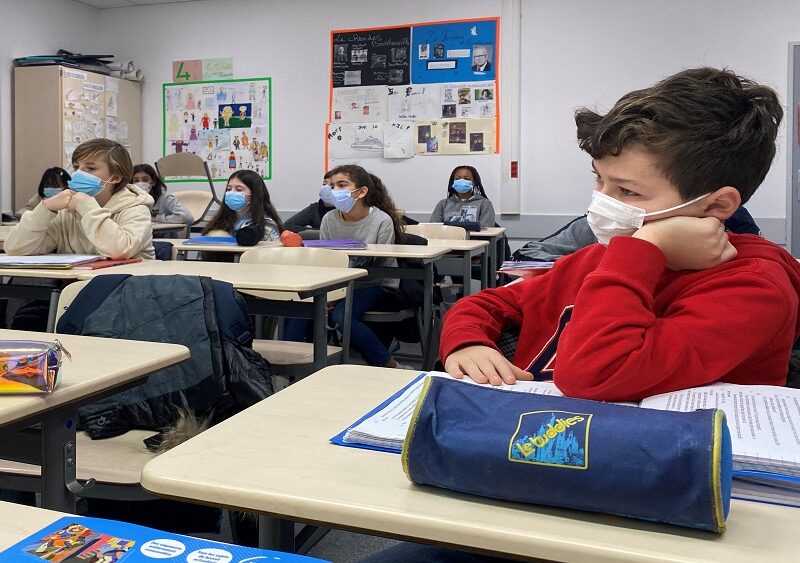In today’s competitive educational landscape, parents are increasingly turning to enrichment classes to supplement their children’s learning experiences.
These classes provide additional support in various subjects, from academic tutoring to creative and technical skills development. With the rise of enrichment classes, parents are faced with a plethora of options and choices.
This article explores the phenomenon of enrichment classes, their benefits, and what parents need to consider when seeking these programs for their children.
Why Are Enrichment Classes on the Rise?
Several factors contribute to the increasing popularity of enrichment classes. Understanding these can help parents make informed decisions about their children’s education.
1. Competitive Academic Environment
The modern educational landscape is highly competitive. Parents often feel pressured to ensure their children excel academically, which can lead to a greater reliance on enrichment classes.
These programs provide additional support in core subjects such as math and science, helping students keep up with their peers and excel in their studies.
2. Diverse Learning Needs
Every child is unique, with individual learning styles, strengths, and challenges. Traditional classroom settings may not always accommodate these differences.
Enrichment classes offer tailored approaches to learning, allowing students to progress at their own pace and focus on areas where they need improvement or where they excel.
3. Exploration of Interests
Beyond academic support, enrichment classes allow children to explore new interests and talents. From art and music to coding and sports, these classes encourage children to pursue their passions and develop new skills.
This exploration can lead to enhanced creativity, self-confidence, and overall enjoyment of learning.
4. Parental Involvement
Parents today are more engaged in their children’s education than ever before. They recognize the importance of additional learning opportunities and are actively seeking programs that can complement their child’s schooling.
This increased involvement has fueled the growth of enrichment classes as parents look for effective ways to support their children’s learning journeys.
5. Technological Advancements
The rise of technology has transformed education, making it more accessible and engaging for students. Many enrichment classes now incorporate technology, offering innovative approaches to learning.
For example, coding classes for kids have gained popularity, providing children with valuable skills in a rapidly evolving job market. As technology continues to play a significant role in education, parents are eager to equip their children with the necessary skills to thrive.
Types of Enrichment Classes
With the rise of enrichment classes, parents now have access to a wide variety of options. Here are some common types of enrichment classes that are gaining popularity:
1. Academic Enrichment
Academic enrichment classes focus on core subjects such as math, science, and language arts. These classes often provide additional tutoring and support for students who may be struggling or want to excel further. They may also offer preparation for exams or standardized tests.
2. Creative Arts
Creative arts classes, including art, music, dance, and drama, allow students to express themselves and explore their artistic talents.
These classes’ foster creativity and can enhance students’ problem-solving skills, as they learn to think outside the box and approach challenges from different angles.
3. STEM and Coding
As technology becomes increasingly integrated into daily life, STEM (Science, Technology, Engineering, and Mathematics) education has gained significant attention.
Coding classes for kids, including AI coding classes for kids near me, equip students with essential skills for the digital age. These classes help children develop logical thinking and problem-solving abilities while providing a foundation for future careers in technology.
4. Language and Cultural Studies
Language enrichment classes, such as foreign language courses, can enhance communication skills and cultural awareness.
These classes often focus on practical language use, helping students become more confident in their speaking, listening, reading, and writing abilities.
This exposure to different cultures can also foster empathy and understanding in young learners.
5. Life Skills and Personal Development
In addition to academic subjects, many enrichment programs offer classes focused on life skills and personal development.
These may include workshops on public speaking, leadership, financial literacy, and time management. By equipping children with essential life skills, parents can help them become well-rounded individuals prepared for the challenges ahead.
How to Choose the Right Enrichment Class
With the vast array of enrichment classes available, choosing the right program for your child can be daunting. Here are some key factors to consider when selecting an enrichment class:
1. Identify Your Child’s Interests
Start by discussing your child’s interests and passions. Understanding what they enjoy can help guide your search for suitable enrichment classes.
Whether your child is fascinated by science, loves to paint, or has an interest in technology, knowing their preferences will make it easier to find the right program.
2. Assess Learning Needs
Consider your child’s strengths and weaknesses in various subjects. If your child struggles with math, a tuition class or math enrichment class might be beneficial.
On the other hand, if they excel in creative writing, look for programs that encourage that interest. Identifying their learning needs can help you choose a program that effectively supports their development.
3. Research Local Options
Utilize online resources to search for enrichment classes near me. Look for local centers or programs that offer the type of enrichment your child needs. Check their websites for information on class offerings, schedules, and fees.
Don’t hesitate to reach out for more information or to clarify any questions you may have.
4. Visit Facilities
If possible, visit the facilities where the enrichment classes are held. This visit allows you to assess the environment, teaching methods, and overall atmosphere.
Observe how instructors interact with students and whether the space is conducive to learning. A welcoming and safe environment is crucial for your child’s comfort and engagement.
5. Ask About Qualifications
Ensure that instructors are qualified and experienced in their respective fields. Instructors with a solid educational background and teaching experience can significantly enhance the quality of your child’s learning experience. Don’t hesitate to ask about their qualifications and teaching philosophy.
6. Trial Classes
Many enrichment programs offer trial classes, which can be a great way for your child to experience the program before committing. This trial allows them to gauge their interest and compatibility with the class.
Observe their enthusiasm and engagement during the trial, as this can provide valuable insights into whether the program is the right fit.
7. Consider Class Size
Class size can significantly impact your child’s learning experience. Smaller classes often allow for more individualized attention and interaction between students and instructors.
This can enhance your child’s understanding of the material and boost their confidence in participating.
8. Evaluate Program Flexibility
As a busy parent, you may need to consider the flexibility of class schedules. Look for programs that offer classes at convenient times or provide options for make-up sessions if your child cannot attend a scheduled class.
Flexibility can help you maintain a balance between academic commitments and extracurricular activities.
9. Cost and Value
While enrichment classes can be an investment, consider the value they provide for your child’s education. Evaluate the cost in relation to the quality of instruction and the benefits offered.
Some programs may provide comprehensive packages that include various classes, which can offer better value for money.
10. Gather Feedback
After enrolling your child in an enrichment class, gather feedback from them regularly. Ask about their experiences, what they enjoy, and if they feel they are learning and growing.
This feedback can help you make informed decisions about continuing or changing their enrichment activities.
The Role of Student Care in Enrichment Programs
For many parents in Singapore, the concept of student care extends beyond mere supervision after school hours.
Many student care SG programs have integrated enrichment classes into their offerings, providing a convenient and holistic approach to after-school education.
These centers recognize the importance of enriching students’ lives while also offering a safe and nurturing environment.
1. Convenience for Parents
Combining student care with enrichment classes offers a practical solution for busy parents. This setup eliminates the need for parents to shuttle their children between school, student care, and enrichment classes, saving time and reducing stress.
Parents can feel reassured knowing their child is engaged in productive learning activities while under supervision.
2. Balanced Approach to Learning
Student care programs that incorporate enrichment classes often emphasize a balanced approach to education.
By offering a mix of academic support and creative exploration, these programs cater to various aspects of a child’s development.
This holistic approach can help foster well-rounded individuals who are prepared for the challenges of the future.
3. Social Interaction and Teamwork
Enrichment classes within student care programs provide children with opportunities to socialize and collaborate with their peers.
This social interaction is essential for developing interpersonal skills and building friendships. Working together on projects or participating in group activities fosters a sense of teamwork and community among students.
4. Incorporating Technology
As technology continues to advance, many student care programs have begun to offer coding classes for kids near me as part of their enrichment offerings.
These classes help students develop critical skills for the digital age, including problem-solving, logical thinking, and creativity. Learning coding in a supportive environment can inspire a passion for technology and innovation.
5. Tailored Support
Student care centers often take the time to understand each child’s unique needs, allowing them to tailor their enrichment programs accordingly.
This individualized approach ensures that children receive the support they require, whether in academics, creative pursuits, or life skills development.
Conclusion
The rise of enrichment classes reflects a growing recognition of the importance of supplemental education in today’s competitive landscape. By providing opportunities for academic support, creative exploration, and skill development, these classes can significantly enhance a child’s learning experience.
Parents play a crucial role in identifying the right enrichment programs for their children. By considering factors such as interests, learning needs, and the quality of instruction, parents can make informed decisions that align with their child’s unique journey.
With the increasing availability of enrichment classes, including coding classes for kids near me and comprehensive student care SG programs, parents have more options than ever to support their children’s education.
Ultimately, enrichment classes can empower children to explore new interests, develop critical skills, and foster a love of learning that extends beyond the classroom. As the landscape of education continues to evolve, parents can confidently navigate the world of enrichment classes, ensuring their children have access to the resources and opportunities they need to thrive.



